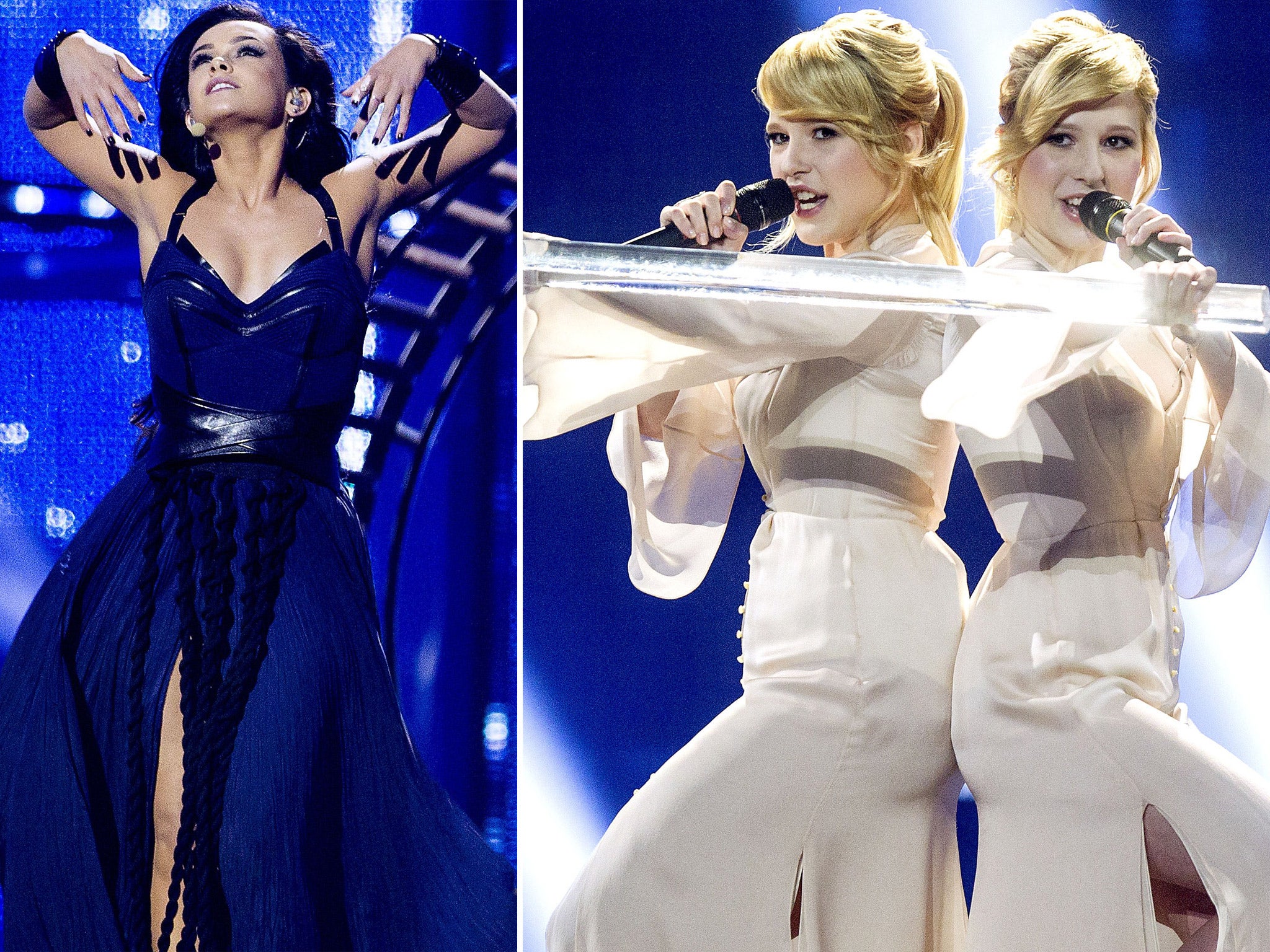Eurovision 2014: Ukraine and Russia in music propaganda battle ahead of final

It’s Ukraine vs Russia part two – but this time the battleground is pop. The first shots have been fired in a bitter Eurovision Song Contest battle after the two warring nations qualified for Saturday’s final.
Geopolitical strife has traditionally been played out during Eurovision and Copenhagen 2014 will have a particular edge as Ukraine and Russia seek to wring the maximum propaganda advantage from their entries.
Russia sought to portray a “softer” image by selecting the Tolmachevy twins, innocent-looking 17-year-olds, to perform its entry, "Shine".
However the twins, already junior Eurovision winners, were booed by the 10,000-strong Danish audience when they performed at Tuesday night's semi-final.
Some detect the hand of Putin behind "Shine"’s lyrics. Although the song purports to tell “all the world to show some love” it also contained verses which foreshadow the Ukraine incursion: “Living on the edge / closer to the crime / cross the line a step at a time”.
The booing may not have been entirely due to Russia’s aggressive actions in the Ukraine but a response to the country’s anti-gay legislation.
Members of the audience waved rainbow flags behind the twins and the backlash against the nation’s homophobic laws is likely to cost Russia public votes on Saturday.
Ukraine’s contender Mariya Yaremchuck, who also qualified for the final, was jeered by a small pro-Russian faction in the audience.
Her song, "Tick-Tock", contained the line - “I believe that I’ve loved you since the first time that I saw you” – which could be interpreted as a reference to the day Ukraine received Crimea as a “gift” from Soviet leader Nikita Khrushchev.
Enjoy unlimited access to 100 million ad-free songs and podcasts with Amazon Music
Sign up now for a 30-day free trial
Enjoy unlimited access to 100 million ad-free songs and podcasts with Amazon Music
Sign up now for a 30-day free trial
Yaremchuck was accompanied by a dancer running in a giant hamster wheel, possibly an oblique comment on the plight of ordinary Ukrainians.
Whilst the Tolmachevy twins refused to discuss the current stand-off, Yaremchuck, 21, a supporter of Ukraine’s Party of Regions, the previous ruling political force under ousted President Viktor Yanukovych, seized her moment.
"Everyone in Ukraine was shocked,” she said of the deteriorating situation at a press conference. “It really affects me because I will try my best to prove that Ukrainians are a strong nation and conflicts end, but music lives. I hope Ukraine will start a new life and a new page.”
Ukraine is expected to benefit from a Europe-wide sympathy vote – the final tally is split between the public’s choice and national juries. But countries cannot vote for themselves and organisers moved to quash concerns that viewers in Crimea, the Ukrainian territory annexed by Russia, would now be counted as Russians.
“In Crimea, there is a Ukrainian telecom network in service. This means that the votes from the area are part of the Ukrainian televote at this year's Eurovision Song Contest,” a spokesman said.
In 2005, after Ukraine’s pro-democracy Orange Revolution, Russian voters awarded its neighbour just two points despite having lavished it with a maximum 12 just a year earlier.
Amid the political manoeuvrings, Britain’s entry, Molly Smitten-Downes, sought to whip up support for her “can’t we all just get along” anthem, "Children of the Universe".
Smitten-Downes, 27, was installed as third favourite, after wearing a plunging sci-fi themed dress, described as “Raquel Welch’s One Million Years BC meets C-3PO” at a rehearsal for the final. Despite dismal recent performances, the UK remains one of the “big five” nations guaranteed a place in the final by virtue of their financial support for the European Broadcasting Union.
The Ukraine-Russia grudge match may prove a sideshow, according to the bookies. Armenia’s entry, Aram MP3, is the favourite for "Not Alone", a dubstep piano ballad. Other hotly-tipped songs by Sweden, Hungary and Azerbaijan also qualified ahead of the second semi-final on Thursday night.
Join our commenting forum
Join thought-provoking conversations, follow other Independent readers and see their replies
0Comments